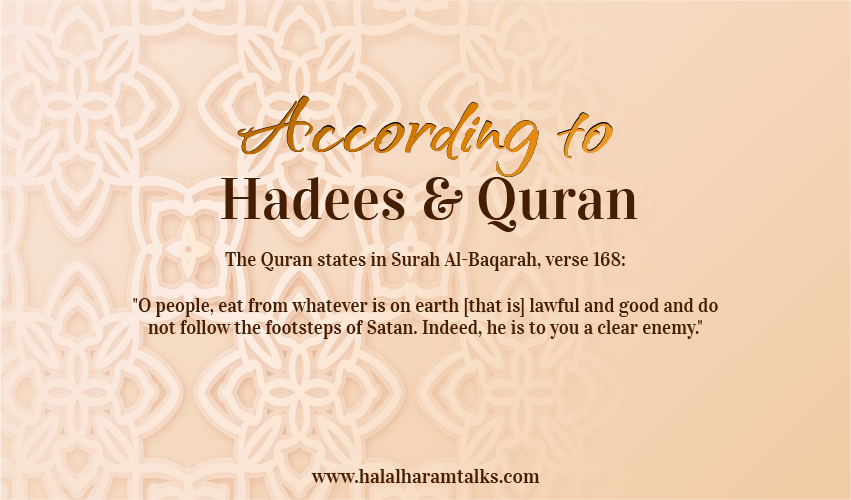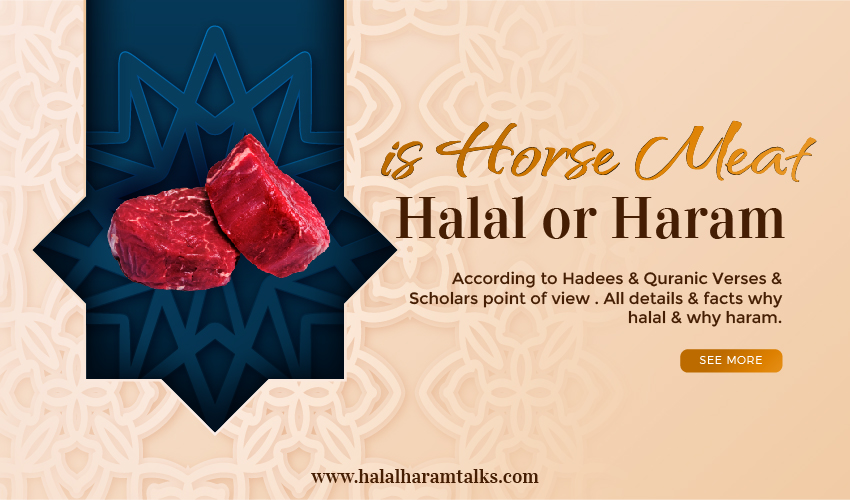Horse meat is a topic of debate when it comes to its permissibility in Islam. Muslims around the world abide by certain dietary restrictions, and these guidelines are outlined in the Quran and Hadith. To determine whether horse meat is halal or haram (permissible or forbidden), it is essential to delve into Islamic teachings and interpretations of scholars.
Islam places great importance on the dietary habits of its followers, emphasizing the consumption of halal (lawful) food and avoiding haram (prohibited) substances. However, the question of whether horse meat is halal or haram does not have a straightforward answer. Different schools of thought within Islam have varying opinions regarding the permissibility of consuming horse meat.
Quran Verse or Hadith Referring to Horse Meat Halal or Haram
The Quran does not specifically mention horse meat, so scholars rely on Hadith (sayings and actions of the Prophet Muhammad) to determine its status. There are no specific Hadith narrations addressing the permissibility of horse meat, making it difficult to provide a definitive answer based on direct evidence. However, there are general Hadith and Quranic verses that shed light on the broader principles of halal and haram.
The Quran states in Surah Al-Baqarah, verse 168:
“O people, eat from whatever is on earth [that is] lawful and good and do not follow the footsteps of Satan. Indeed, he is to you a clear enemy.”
This verse emphasizes the importance of consuming food that is lawful and good. While it does not explicitly mention horse meat, it establishes a general principle for all types of food.
Similarly, there are Hadith that emphasize the prohibition of consuming anything that is impure or haram. One such Hadith narrated by Ibn Majah states:
“Verily, Allah is pure and He only accepts what is pure. Allah has commanded the believers with what He commanded the Messengers. He says, ‘O Messengers, eat of the good foods and do righteous deeds.'”
This Hadith highlights the importance of consuming pure and lawful foods, leaving no room for ambiguity when it comes to consuming anything that is haram.

Is Horse Meat Halal in Islam?
The permissibility of consuming horse meat in Islam is a subject of debate among scholars. Some Islamic scholars consider horse meat to be halal (permissible) based on the general ruling that all types of meat are allowed unless specifically prohibited. However, other scholars argue that consuming horse meat is makruh (discouraged) or even haram (forbidden) due to interpretations of certain Hadiths (narrations about the Prophet Muhammad).
One Hadith often mentioned in this context is a narration stating that the Prophet Muhammad forbade eating horses and considered them to be wild animals. However, the authenticity and interpretation of this Hadith are disputed among scholars.
Whether horse meat is considered halal or not varies among different interpretations and schools of thought within Islam. It is recommended to seek guidance from a knowledgeable and trusted Islamic scholar who can consider specific circumstances and provide a more accurate ruling according to your situation.
Related:
- Is Rabbit Meat Halal: A Quick Explanation
- Is McDonald’s Halal [All Clear]
- Is Bacon Halal Or Haram Yes/No
Is Horse Meat Halal to Eat?
From a technical standpoint, if a horse is slaughtered in the appropriate halal manner (by following Islamic guidelines of slaughtering), its meat is considered halal for consumption. However, as mentioned earlier, the permissibility of horse meat varies based on different interpretations within Islamic jurisprudence.
Related: Are Cheetos Halal Or Haram [Explained With Proof]
Is Horse Meat Halal or Haram According to Primary Schools of Thought?
To summarize the opinions of the four primary schools of thought regarding the permissibility of horse meat:
- Hanafi School (Sunni): Horse meat is considered haram.
- Shafi’i and Maliki Schools (Sunni): Horse meat is considered halal.
- Hanbali School (Sunni): While horse meat is not expressly prohibited, it is recommended to avoid it as a precautionary measure.
It’s worth noting that within the Shia school of thought, the consumption of horse meat is generally considered permissible.
Related: Is Dave’s Hot Chicken Halal
FAQs:
According to the majority opinion among scholars, if the meat of a horse is processed and sold under proper halal guidelines, it can be considered halal, even in non-Muslim countries. However, it is recommended to exercise caution and refer to reliable halal certification authorities.
If the horse meat is obtained through improper means, such as stealing or unlawful possession, it becomes haram. Additionally, it would be haram to consume horse meat if it is mixed with any haram substances or if it is known to be contaminated or harmful to health.
No, there is no unanimous agreement among Islamic scholars regarding the permissibility of horse meat. Different scholars have different interpretations based on their understanding of the Quran and Hadith, leading to varying rulings within different schools of thought.
Conclusion
The permissibility of horse meat in Islam is a topic of debate among scholars. While the Quran does not directly address this issue, the general principle of consuming lawful and pure food applies. It is important for individuals to refer to their respective scholars. And follow the guidelines provided by reliable halal certification authorities.
Ultimately, it is essential for Muslims to be conscious of the sources and methods of obtaining meat. Ensuring it aligns with Islamic teachings of halal and tayyib (pure) consumption. Employing ethical and hygienic practices in selecting and preparing food is a crucial aspect of living a halal lifestyle.
For a more in-depth understanding of what is considered halal and haram in Islam. As well as guidance on dietary matters. It is recommended to refer to knowledgeable scholars and reliable Islamic sources. Visit our website to explore further and gain a deeper understanding of the principles and guidelines of halal and haram in Islam.
